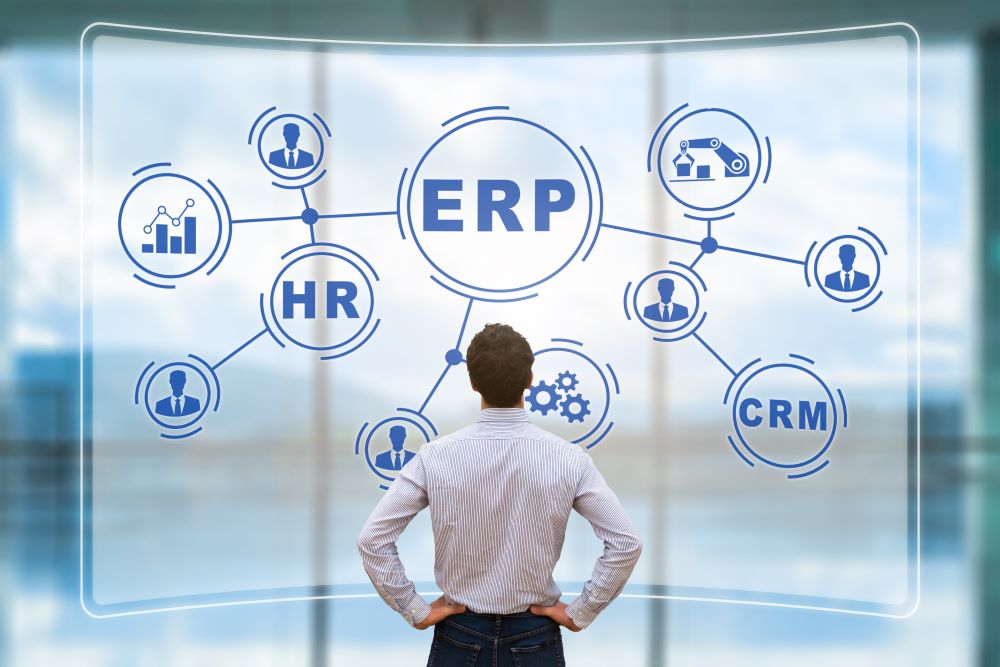
|
|
ERP stands for “Enterprise Resource Planning” and refers to a type of software or system used by a business to plan and manage daily activities such as supply chain, manufacturing, services, financials, and other processes. ERP systems are critical for managing thousands of businesses of all sizes and in all industries.
The history of ERP goes back more than 100 years. In 1913, engineer Ford Whitman Harris developed what became known as the economic order quantity (EOQ) model, a paper-based manufacturing system for production scheduling.
MRP remained the manufacturing standard until manufacturing resource planning (called MRP II) was developed in 1983. As computer technology evolved through the 1970s and 1980s, concepts similar to MRP II were developed to handle business activities beyond manufacturing, incorporating finance, customer relationship management, and human resources data.
ERP systems are designed around a single, defined data structure that typically has a database. This helps ensures that the information used across the enterprise is standardised and based on common definitions and user experiences. These are then connected with the different departments who use them from finance to operations and sales to customer service. ERP is the vehicle for integrating people, processes, and technologies across a modern database.
With access to ERP, companies can quickly improve their business best practices as the ERP software evolves. They can automate methods that used to lots of processes, such as reconciling financial accounts and creating orders and invoices.
For most the advantages of ERP systems often outweigh the disadvantages. The potential for totally streamlined business functions and boosts in productivity over the long-term makes the benefits of implementing ERP systems a worthwhile investment of time and resources.
Date: October 25, 2021
Author: Morris